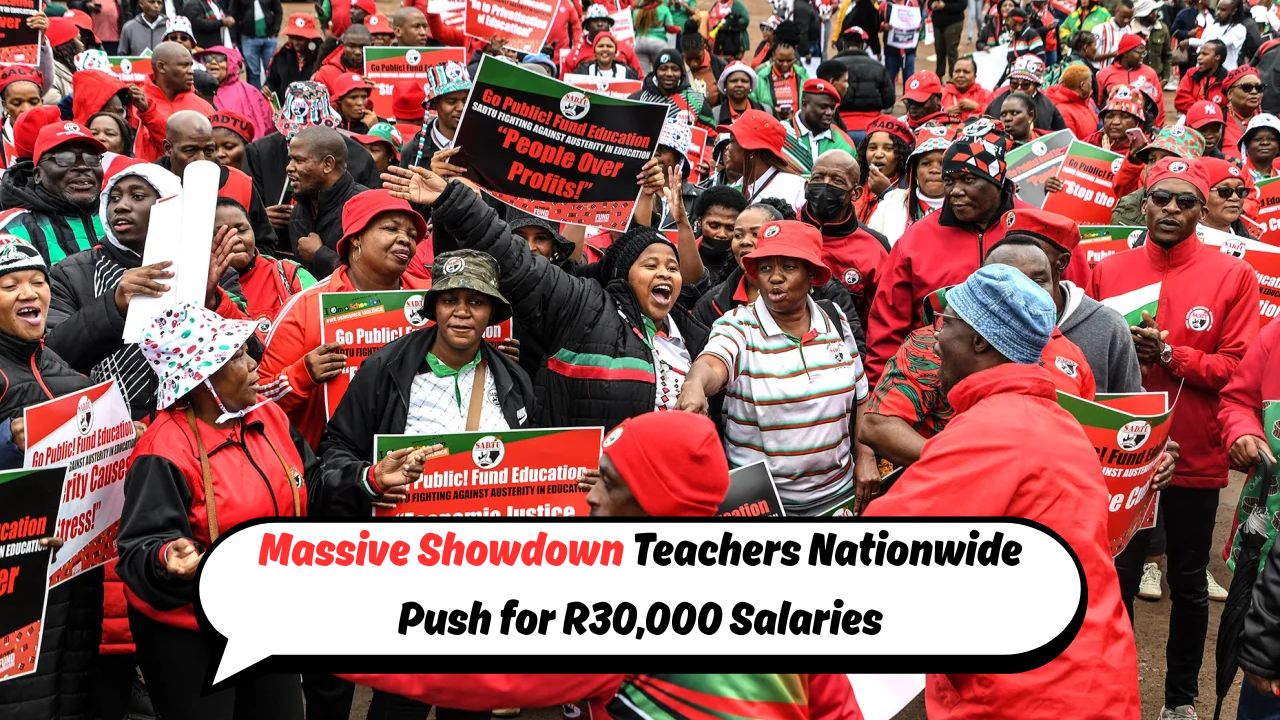Teacher Protest South Africa – South Africa witnessed a powerful uprising in August 2025 as thousands of teachers took to the streets across the nation, demanding a significant salary increase. The educators are calling for a standard monthly wage of R30,000, arguing that current earnings are no longer sustainable given rising living costs. From Johannesburg to Cape Town, the protests have drawn widespread attention, with placards, chants, and organized marches bringing parts of the country to a standstill. Teachers have expressed frustration over being undervalued and underpaid, emphasizing that quality education begins with adequately compensated professionals. Their message is clear: change must come now.
Nationwide Movement Gains Momentum
The teacher-led protests have ignited a national conversation about the value of education and fair wages. Demonstrators from all nine provinces have joined the cause, making this one of the most coordinated and large-scale protests in recent years. Teachers say they’ve endured years of stagnant wages despite increasing workloads and inflation. Community members, students, and civil society organizations have shown support, acknowledging that well-compensated educators are critical to a thriving education system. Many hope this movement will push the government to revisit budget allocations for education and prioritize teacher welfare in policy discussions going forward.
Government Faces Mounting Pressure
With growing unrest among teachers, the South African government is under increasing pressure to respond decisively. Education unions have submitted formal demands, including the R30,000 salary baseline and adjustments based on experience and qualifications. Officials have acknowledged the protests but have yet to commit to specific figures, citing budgetary constraints. In response, unions warn of continued and escalated action if their concerns are ignored. Analysts suggest that the situation could become politically volatile if unresolved. The protests highlight broader dissatisfaction within the public sector and have sparked debate over national priorities, economic strategy, and wage equity in public service.
Educators Speak Out
Voices from the protests reflect a deep sense of frustration and determination. Many teachers say they are driven not only by financial hardship but also by a desire for respect and recognition. “We love our students, but love doesn’t pay the bills,” said one protester. Others shared stories of working extra jobs just to make ends meet, which ultimately affects their performance in the classroom. These personal testimonies paint a vivid picture of the challenges faced by educators across South Africa. Through unified action, they are hoping to bring meaningful change to a profession that is essential yet often undervalued.
Ripple Effects on Education
The protests have already disrupted schooling in several districts, prompting concern from parents and school administrators. While many support the teachers’ demands, they also worry about the long-term impact on students. Some schools have closed temporarily, and exam schedules have been delayed. Education experts warn that prolonged disruption could widen achievement gaps, especially in under-resourced communities. However, teachers argue that short-term pain is necessary for long-term gain. They believe that fair compensation will ultimately lead to better teaching conditions, improved morale, and higher student outcomes—making the current unrest a critical turning point in South Africa’s education system.
